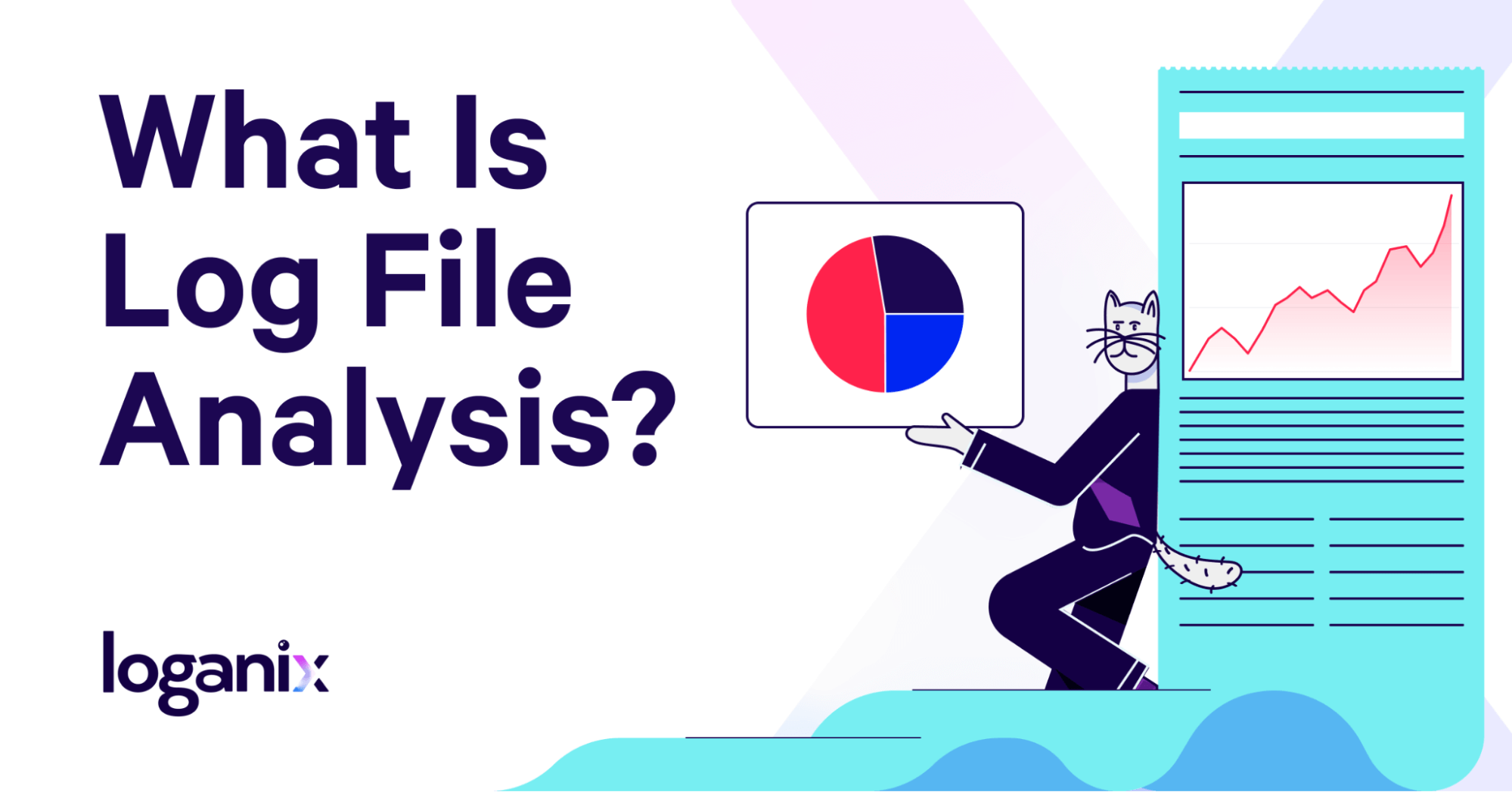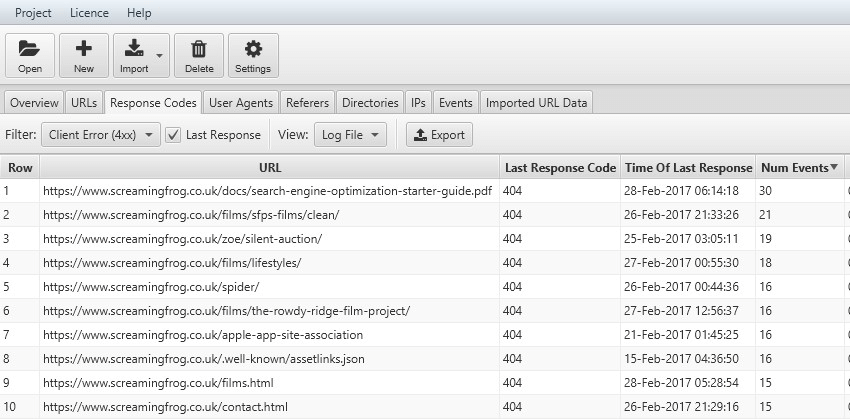What Is Log File Analysis?

Hand off the toughest tasks in SEO, PPC, and content without compromising quality
Explore ServicesHaving access to a detailed record of every interaction search engine bots have with a website, from the most popular pages to the inaccessible ones, would be pretty handy, right?
This is precisely the depth of insight provided by log file analysis.
To get you up to speed with everything log analysis, in this guide, we’ll further support your learning journey by
- answering the question, “What is Log File Analysis?”
- exploring what log files and log analysis are,
- and uncovering the basics of why log file analysis is important to the advanced techniques of analyzing them for technical SEO gold.
Understanding Log Files
Log files document every action and log event on a web server. In other words, each time a user or search engine bot interacts with a website, the server creates a log entry detailing that interaction.
The record log reveals a whole host of log analytics, including data on a visitor’s IP address, the nature of their request (for example, viewing a page or downloading a file), the returned HTTP status code (showing a successful or failed return), the device or browser used to browse a page (identified by the user agent), and the time of the activity.
👉 Real-world example: Here’s a simplified example of how a log file may look for a website.

Types of Log Files
There are several types of server log files, each serving a specific purpose and containing distinct sets of data:
- Access logs are perhaps the most commonly referenced log files. Access logs record all requests processed by the server. This includes every page view, image load, and any other resource fetched by users or bots.
- Error logs capture server errors, ranging from “404 Not Found” errors, indicating a requested page doesn’t exist, to “500 Internal Server Error,” which might signal a more serious server malfunction.
- Content Delivery Network (CDN) logs provide insights into how content is delivered to users from multiple locations worldwide. CDNs are used to speed up content delivery by serving users from the nearest data center.
What Is Log File Analysis?
Log file analysis delves into server-produced logs, sifting through extensive raw data to grasp user actions, server efficiency, and how search engine bots engage with a website. But that’s not all—log file analysis goes beyond just tracking the frequency of visits by a search engine crawler, like Googlebot or Bingbot. It also helps identify indexation challenges, pinpoint crawl budget waste, and detect server errors that could be affecting a site’s performance.
However, log file analysis is more than just deciphering log file data. It encompasses a series of detailed procedures to convert this raw data—known as log management—into actionable insights:
- The normalization process transforms diverse data into a consistent format, streamlining analysis and comparison.
- Pattern recognition identifies recurring sequences or trends in the log data. Spotting patterns allows analysts to forecast future behaviors, comprehend routine server activities, and identify anomalies that could signal potential issues or security breaches.
- Classification involves grouping similar log entries based on specific criteria, such as type of request, HTTP status code, or user agent. This process helps segment the data for more focused analysis.
- Tagging is the process of labeling specific log entries with relevant descriptors. For instance, all entries related to Googlebot might be tagged as “Googlebot Activity.” This not only aids in quickly retrieving related data but also simplifies the process of analyzing specific segments of the log data.
Learn more: Interested in broadening your SEO knowledge even further? Check out our SEO glossary, where we’ve explained over 250+ terms.
Why Is Log File Analysis Important (For SEO)?
Log file analysis is more than just a technical exercise—it’s a window into the intricate dance between search engines and websites. Let’s delve into its importance:
Unveiling Search Engine Behavior
- Crawl insights: Ever wondered how often Googlebot visits your site? Log file analysis reveals the frequency and depth of search engine crawls. For instance, a sudden drop in crawl rate might indicate a potential issue that could harm a website’s performance on the search engine results pages (SERPs).
- Indexable pages check: Not all pages are treated equally. Some might not be indexed due to crawl errors or directives. Analyzing log files lets you pinpoint which pages search engines are skipping and why.
Spotting Potential Issues
- Server errors: A recurring 500 error in your log files? That’s a red flag. Such errors can deter search engines from crawling your site effectively.
- Crawl budget utilization: Search engines have a “crawl budget” for each site. Log file analysis ensures it’s spent on your most crucial pages.
Enhancing User Experience
- Optimizing load times: If search engines encounter slow-loading pages, it’s likely your users do too. Log files help identify these bottlenecks.
- Detecting anomalies: Unexpected spikes in server requests might indicate a security breach or a malfunctioning script. By spotting these anomalies, you’re not just optimizing for search engines but ensuring a seamless user experience.
Log File Analysis Tool
Ready to dive into log file analysis? Start with tools like Google Search Console for a basic overview, and then explore a log analysis tool like Screaming Frog’s Log File Analyzer or Botify’s LogAnalyzer for in-depth, valuable insight.

Learn more: 27 site audit tools for better website analysis.
Conclusion and Next Steps
If you’re looking to elevate your search engine optimization game, why not consider the experts? At Loganix, we don’t just understand the theory—we apply it, refine it, and drive results.
🚀 Ready to Dominate Google Search? Let Loganix’s expert SEO services guide your journey to the top. 🚀
Hand off the toughest tasks in SEO, PPC, and content without compromising quality
Explore ServicesWritten by Aaron Haynes on January 2, 2024
CEO and partner at Loganix, I believe in taking what you do best and sharing it with the world in the most transparent and powerful way possible. If I am not running the business, I am neck deep in client SEO.





